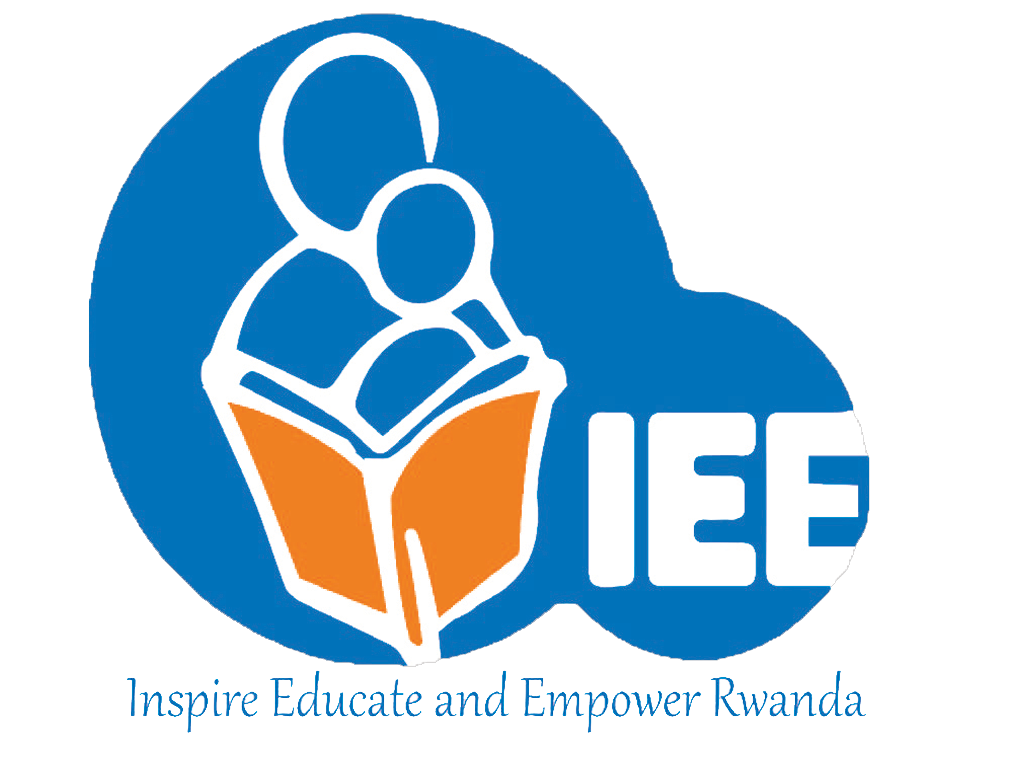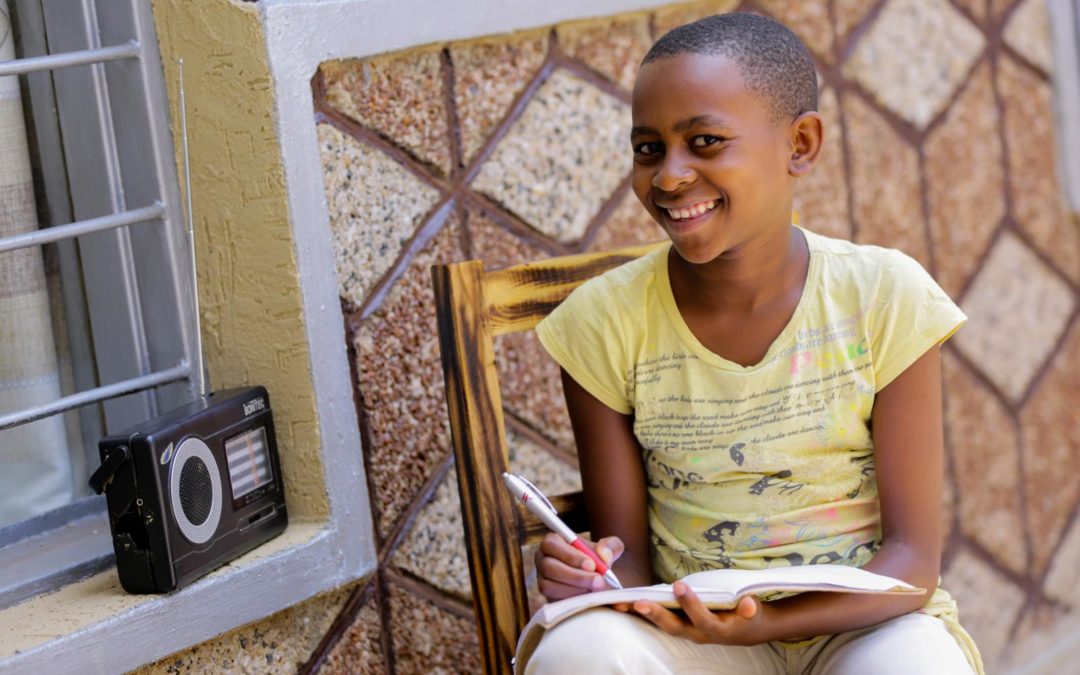UNICEF and partners support Rwanda Education Board to develop radio lessons for students affected by COVID-19 school closures
On 15 March, the Government of Rwanda recommended that all schools close to prevent the spread of Coronavirus. These closures have been extended to at least late April, with over 3 million students now out of school and expected to learn at home.
Every lost day of learning can have a detrimental impact on a child’s future. Rwanda’s students needed immediate solutions to help them learn from home.
“Radio is the most popular and accessible medium in Rwanda. As the national public broadcaster, Rwanda Broadcasting Agency’s radio stations reach almost 99 per cent of the population, including Radio Rwanda and five regional stations,” says Aldo Havugimana, Director of Radio with Rwanda Broadcasting Agency. “Given this expansive reach, radio lessons were identified as the most suitable immediate solution.”
To begin, UNICEF utilised its network and expertise to leverage 144 radio scripts from other countries on primary level literacy and numeracy lessons. These lessons were then contextualised and adapted for Rwanda. UNICEF then built on its existing partnership with the national NGO Inspire, Educate, Empower (IEE) and Rwanda Broadcasting Agency to produce and air these scripts throughout the country.
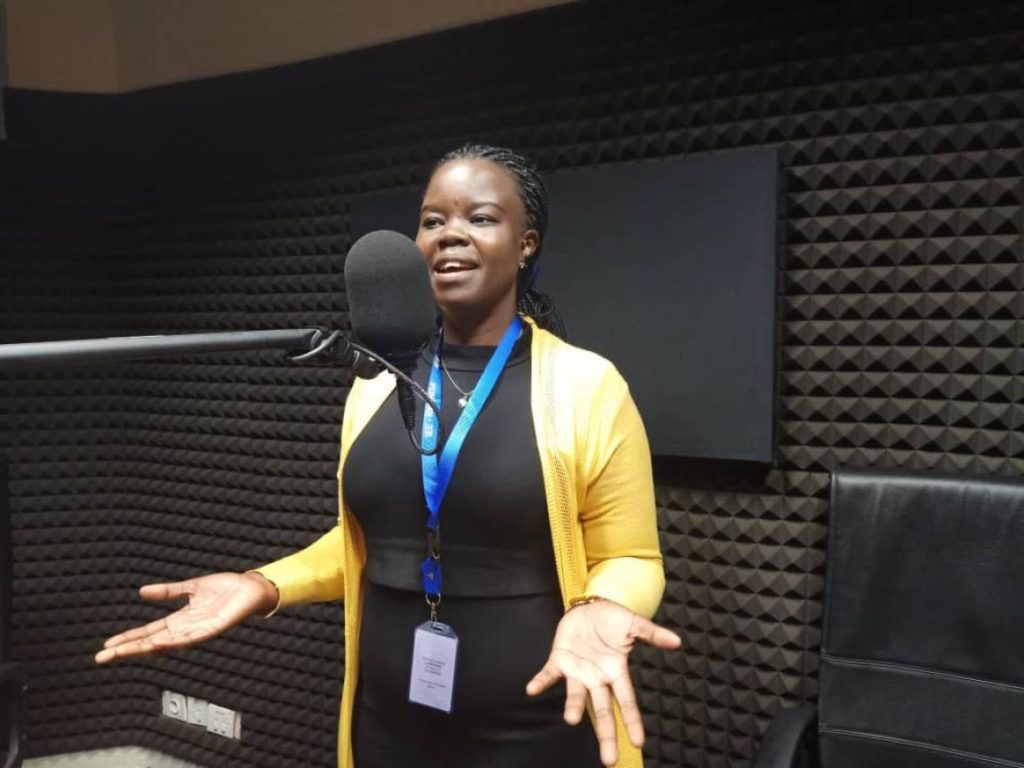
Developing new radio lessons for students
With short-term measures in place to ensure learning opportunities for students, UNICEF is now supporting radio material that is aligned with the Rwandan curriculum.
In collaboration with various development partners and the Rwanda Education Board, UNICEF continues to support the production and airing of new radio material. UNICEF is particularly concerned that early learning opportunities are sustained, therefore developing radio content for pre-primary children.
“This lockdown is necessary to prevent further spread of Coronavirus. But it goes without saying that it should not impede smooth teaching and learning. That is why, more than ever, we call on all partners in the basic education sub-sector to come together and lend their expertise and resources to ensure students’ path to a prosperous future is not interrupted,” says Dr. Irénée Ndayambaje, Director General of Rwanda Education Board.
Lessons are already on the air on Radio Rwanda. As more lessons become available, students will tune in every day at 8:30 a.m. and 2:00 p.m. for radio lessons based on Term 2 materials of the national competency-based curriculum. UNICEF and REB are also exploring partnerships with other media houses to expand airtime.
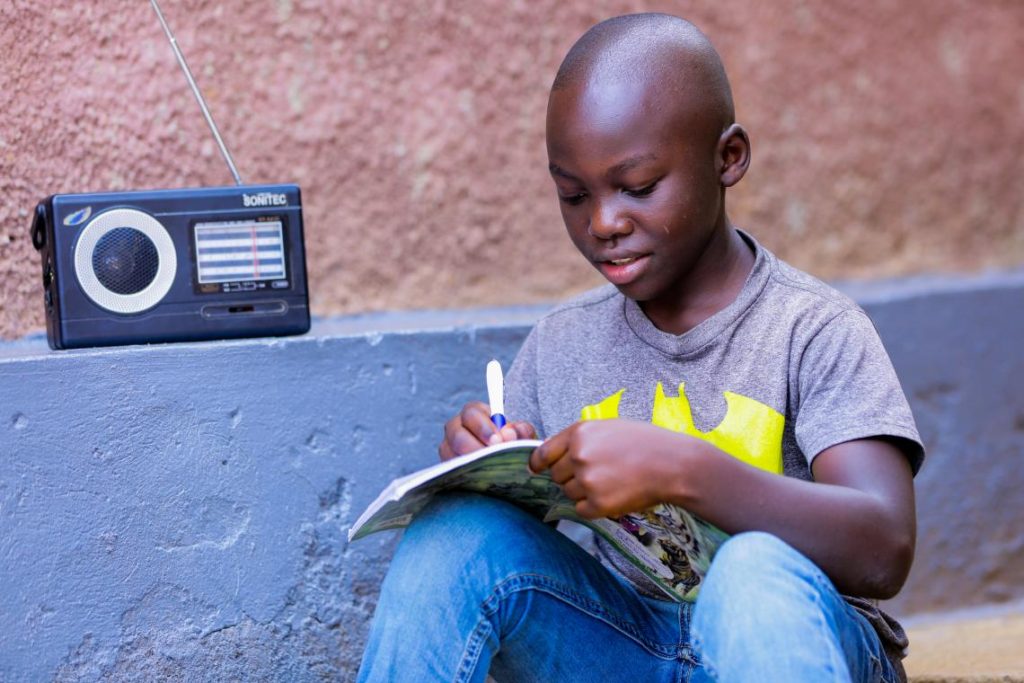
Interactive learning
Each radio lesson is approximately 20 minutes long and focuses on interactive learning. Lessons are designed so students can participate on their own, but parents and caregivers are encouraged to listen in and support learning at home.
When tuning in, children are welcomed to their radio classroom with a friendly introduction from a teacher. Students are prompted to grab their pens and notebooks, and each lesson begins with a review of previous units.
After a short review, the teacher provides a short lecture, with frequent opportunities for students to engage at home. Each lesson concludes with a summary, then a farewell by the teacher and indication of the next lesson topic.
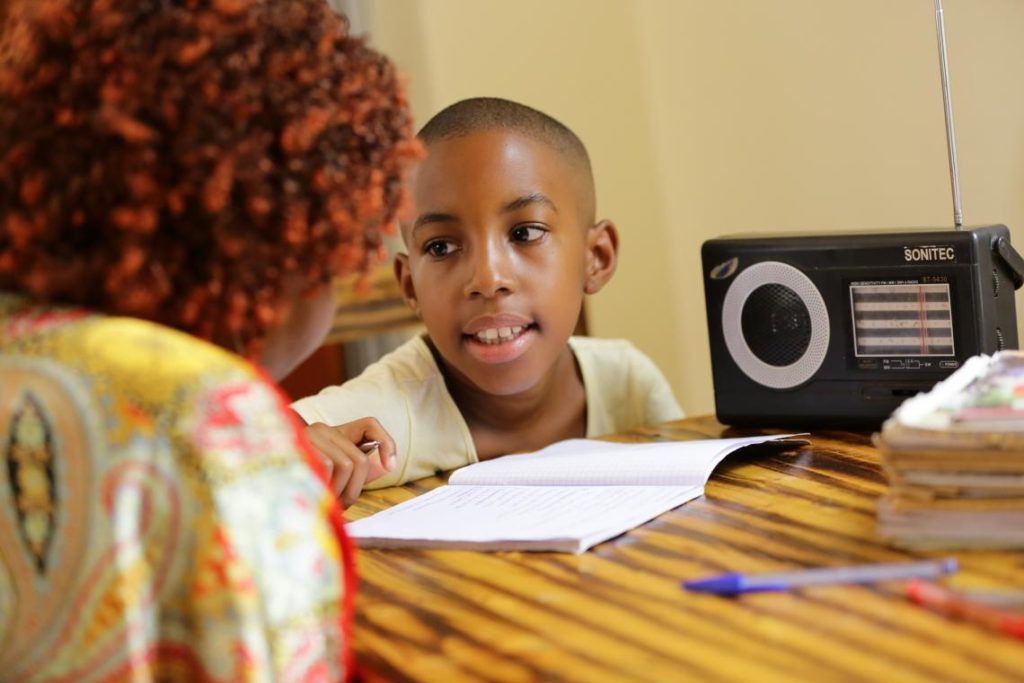
Including students with disabilities
Not every student is able to listen to the radio. For children with disabilities, UNICEF is working with its partner Humanity and Inclusion to ensure that remote learning opportunities are available for all students.
This work will include sign language interpretation of any video content developed and aired on television. Materials will also be developed and hosted on an e-learning platform hosted by Rwanda Education Board. Parents and students will be able to download or stream for free, in partnership with MTN Rwanda.
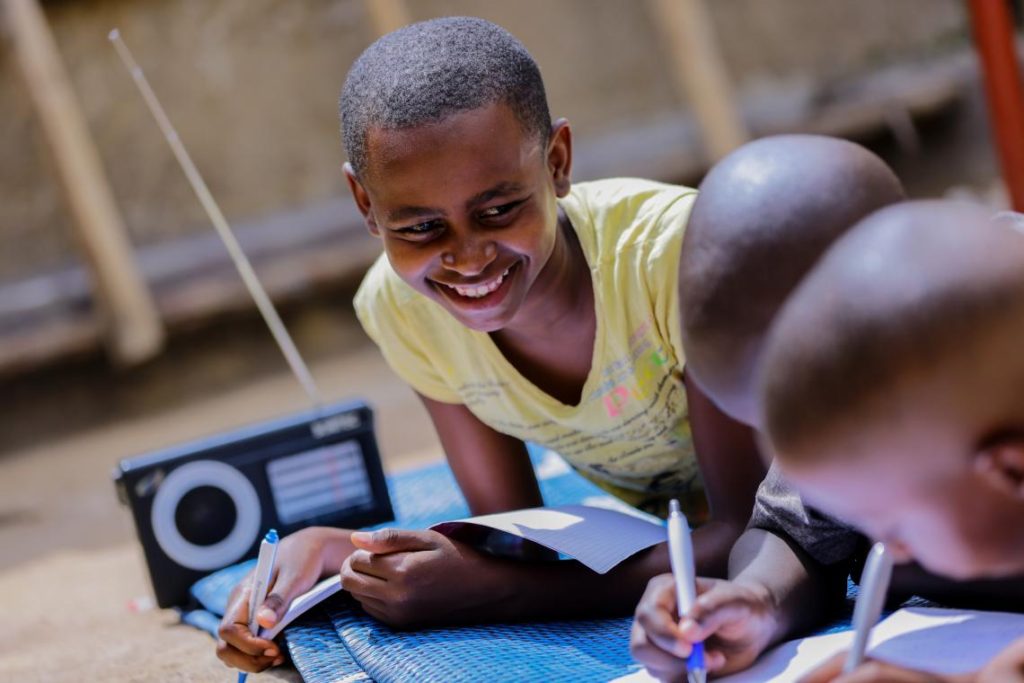
Filling additional gaps in remote education
As one of the Government’s key partners in education, UNICEF will continue to support remote learning materials for Rwanda’s students until schools reopen.
“Even during the COVID-19 pandemic, we cannot afford to give up on a child’s education. We are happy to work with the Government of Rwanda, which has shown such pro-active concern with the continuity of education,” says Julianna Lindsey, UNICEF Representative in Rwanda.
“We encourage parents and caregivers to support these remote learning opportunities as much as possible, because it is only with your help that, together, we can minimize the negative impact on children during these school closures.”
Currently, most materials are being developed for radio, which has the greatest potential to reach the most students, but UNICEF is also supporting the Government’s approach to develop television materials, particularly in science subjects that require demonstration of various experiments. These will focus on mathematics and science experiments to complement other remote learning content. The Government has also shown its commitment to continue working with UNICEF and other partners to strengthen the e-learning platform for alternative learning opportunities and to maintain these resources when schools re-open.
Source: Unicef Rwanda
